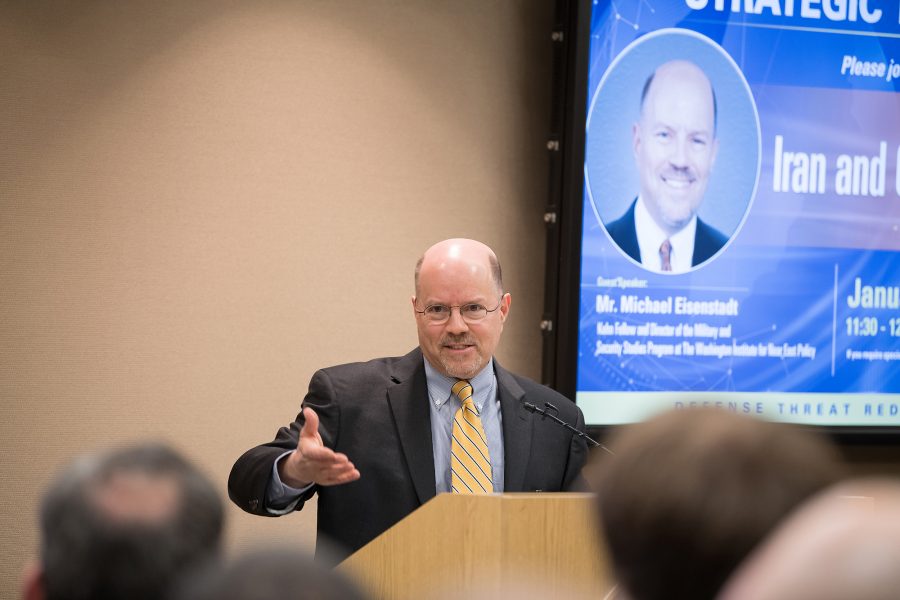The threat of large-scale Iranian action against the United States has waned following the Jan. 3 drone strike that killed that country’s top military leader; however, small scale-attacks have returned, experts said Feb. 7.
The strike at the Baghdad International Airport, which killed Iranian Quds Force Commander Qassem Soleimani and the leader of an Iranian-backed militia, prompted the Jan. 7 ballistic missile attack on American forces inside Iraq. Since then, the “chance of an all-out war” has gone down because Tehran’s top priority is survival and the Trump Administration doesn’t want another war in the region, said retired Lt. Gen. David Deptula, dean of AFA’s Mitchell Institute for Aerospace Studies, during an event at the Washington Institute.
Going forward, the U.S. needs to constrain Iran’s malign activities, roll back its influence, and deter future aggression. The Soleimani strike played into these goals, and the increased presence of American airpower in the region is a sign to Tehran the U.S. will defeat Iran if war were to happen.
“Although no sane individual wants open warfare between the U.S. and Iran, the best way to avoid that outcome is to convince Iran’s leadership that continued aggression will come at an increasingly high cost,” Deptula said.
While broad conflict would not be easy and incur risk, Iran is a relatively “weak nation” when up against American airpower. In addition, cyber actions could collapse the Iranian economy, render the country’s power grid ineffective, weaken their oil trade, “de-nuke” the nuclear program, and choke Tehran’s influence “in short order,” Deptula argued.
Since the strike, there’s been a “return to the status quo” in the region with Iranian proxies going back to launching rockets at the U.S. Embassy complex in Baghdad, and militias remaining active, said Kori Shake, the director of foreign and defense policy studies at the American Enterprise Institute.
Michael Eisenstadt, the director of the Military and Security Studies Program at the Washington Institute, said the regime avoids conventional warfare by using proxies and fighting in other countries. The U.S. should stay in this “gray zone” to counter Iran’s action, using covert action and avoid escalatory acts. Iran is always “testing and probing,” and the U.S. needs to push back in measured steps, he said.
Going forward, the U.S. needs to improve its relationships with allies, both locally and in the region, to ensure there can be a strong coalition to work together for mutual interests. For example, European allies have expressed concern about the implications of the Soleimani strike, and the U.S. has shown to be unreliable with groups on the ground in Iraq and Syria, Shake said.
“It’s not our military capability that’s making people nervous, it’s our political reliability and we’re not doing anything to shore up our political reliability,” she said. “The U.S. can go alone, but shouldn’t.”
